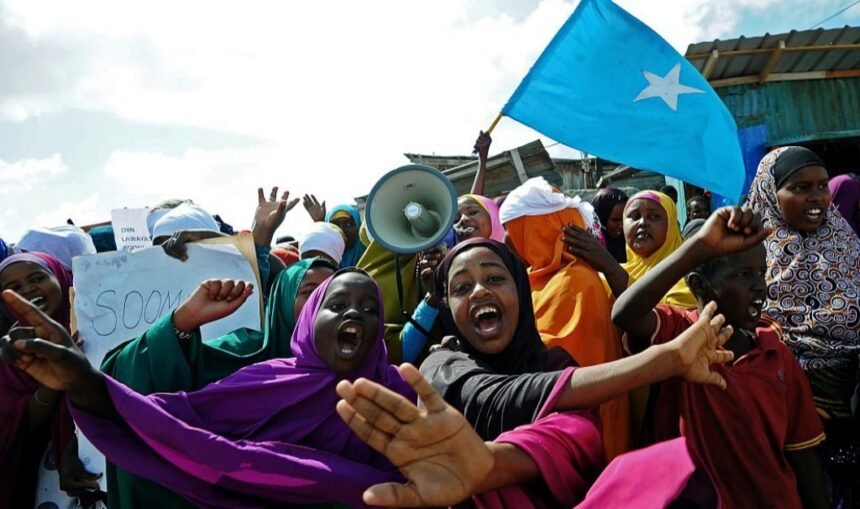By Warsame A.K. Galaydh
Abdifatah Abdullahi Abdi, an opposition politician, was assassinated in cold blood in Las Anod last December. Since then, Las Anod has been a regional flashpoint. As of this writing, skirmishes are ongoing between Somaliland troops and Sool, Sanaag, and Cayn (SSC) troops. Hundreds have been killed and thousands have been displaced.

When the traditional clan leaders in Las Anod declared the SSC region as a part of Somalia, Somaliland’s government issued a statement asserting it is fighting with “international terrorist groups that have been planning on creating insecurity and instability.” The dismal situation in Las Anod underscores the absence of statecraft in Somaliland; more important, it is a microcosm of sociopolitical regression over three decades in both Somaliland and Somalia.
Somaliland and Somalia have thorough and expansive constitutions. The Republic of Somaliland’s constitution has 130 articles while the Federal Republic of Somalia’s constitution has 143 articles. Both constitutions include electoral clauses and specify when elections should take place. Muse Bihi, Somaliland’s head of state, had his presidential term extended by two years by lawmakers last fall when elections were due this year. Elections in Somalia were also delayed until they were finally held in May of 2022.
Delaying elections and even lawfully extending presidential terms simply prevents much-needed institutional development in Somaliland and Somalia. The vexing issue for cabinet members and members of parliament in Somaliland and Somalia is presidential authority instead of fostering compromise in the political arena. When one orders a couch from IKEA, an assembly manual comes with the necessary screws, bolts, and even miniature wrenches. Time and time again, leaders in Somaliland and Somalia have thrown out the user-friendly assembly manual and attempted to assemble the national couch in a crazed and arrogant fashion. Lay persons can appreciate and understand constitutions just as people can assemble items with an assembly manual. The reality is constitutions in Somaliland and Somalia are merely wishes. It is nothing more than nominal constitutionalism.
What should undergird Somali civil society is spiritedness in the public arena. In a Tocquevillian sense, mores form the social fabric and the political bedrock of a society. The Somali people are the tools and bolts. A major roadblock to Somali unity at the social level has been qabil. We can perhaps attribute the vast majority of our societal ills to this damning six-letter word. At its core, qabil is explosive, outdated, and identitarian. Our best and brightest cannot lead us if we are divisive, corrupt, myopic, and lacking in Iman; our leaders are ultimately a reflection of the decay of Somali Dhaqan.
Somalis should consider the following – Japan and Germany were reduced to rubble in the aftermath of World War II. Japan, East Germany, and West Germany were able to bounce back within two decades because of their respective mores. Infrastructure can be destroyed and governments can collapse. Institutional knowledge will be intact so long as a people steadfastly adhere to their mores. The end goal for many (if not all) nation-states is peace, prosperity, and happiness for many generations. Somalis will sadly be at square one in fifty years if qabil remains the societal keystone. In the dance that is state development, it takes two to tango. The Somali people and Somali leaders cannot dance on the regional and national stages.
At the beginning of Book I of Plato’s Republic, Polemarchus demands that Socrates not leave the polis with Glaucon. Polemarchus makes Socrates stay and argues that his group outnumbers Socrates and Glaucon. The beginning of Plato’s Republic is synonymous with the situation in Las Anod. The many, that is, Somaliland, is attempting to brute force its way to keeping the SSC. This must be condemned in the strongest terms by the international community. What is more alarming is the language used by the Somaliland government: to categorize the activity in Las Anod as terrorism is naïve and egregious.
In this instance, Somaliland cannot simultaneously be the bully and the bullied. Somaliland is responsible for intensifying the precarious situation with Somaliland troop involvement. The SSC is free to embrace Somali federalism. From 2012 to 2015, Khatumo State existed. The sub-regional state of affairs in the SSC have long been dynamic. The SSC declaration did not come out of thin air. Somaliland, a self-proclaimed peaceful state, should appreciate the importance of genuine dialogue and diplomacy especially after an opposition politician was assassinated. The irony of the situation is the Dhulbahante were previously disorganized and failed to embrace what was gift wrapped in front of them.
Khatumo essentially means positive conclusion. What do the Somali people and Somali leaders desire? What are our goals? Existential and palpable crises will continue to dog us until we face the music and answer these basic questions. I hope to one day take a paved highway from Xamar to Hargeisa no matter the flag waved. We are all asleep and late to the dance. It is time to too soo.
Warsame A.K.
Email: galaydhwarsame@gmail.com
——–
Galaydh is an attorney in Minnesota.


Leave a Reply